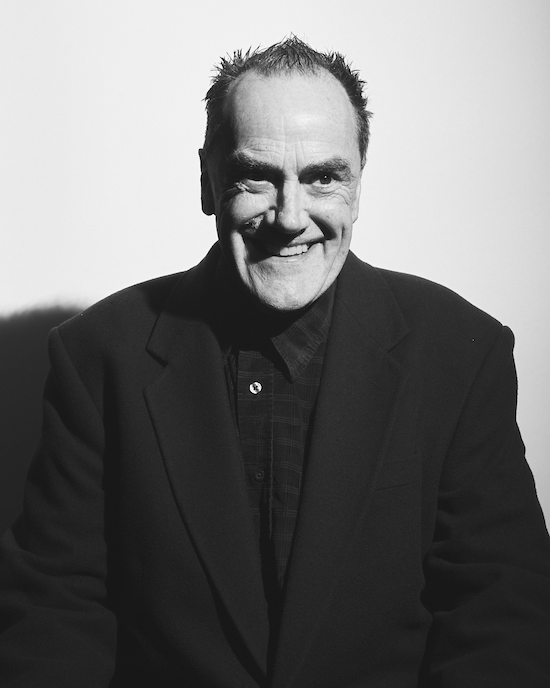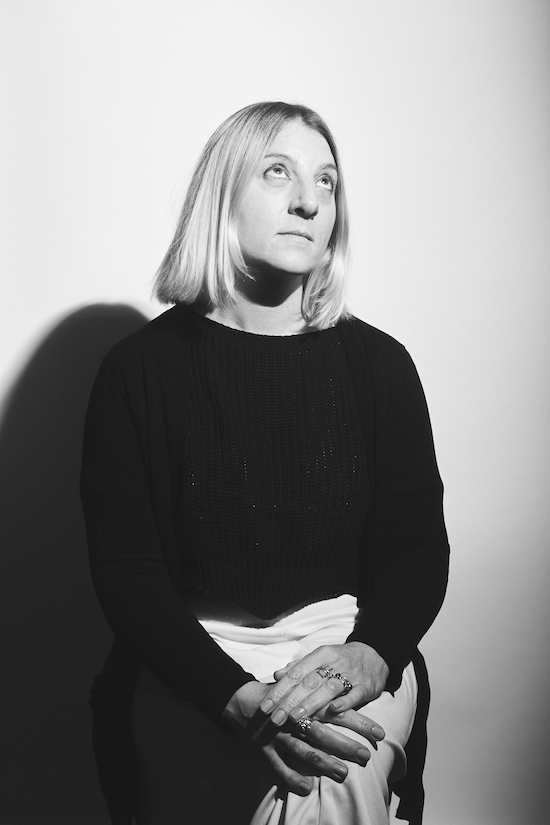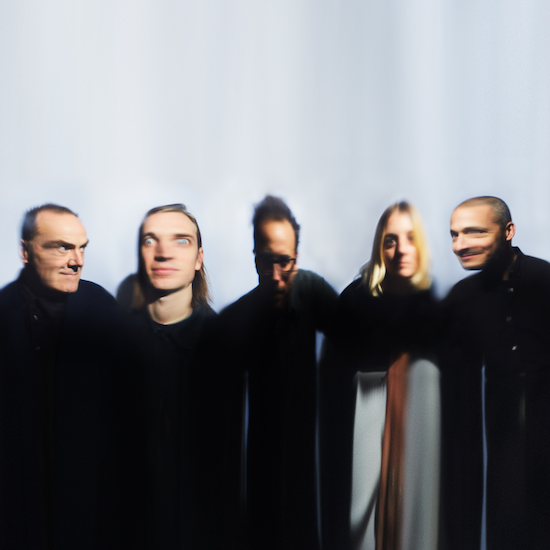It’s 14 August 2022, and I’m at Supernormal in Brazier’s Park, Oxfordshire. It’s been a blazingly hot weekend of eclectic, experimental music, and on the final evening Abstract Concrete are playing on the main outdoor stage. The five-piece band were brought together by drummer, vocalist, composer, songwriter and uncategorisable musical innovator Charles Hayward, best known for the avantgarde post punk of This Heat, but a veteran of dozens, perhaps hundreds of collaborations over the past 50 years as well as an endlessly inventive solo performer. On viola, rather than her usual violin, is Agathe Max, a classically trained improviser and composer as at home playing solo and with the likes of KURO, Mésange, and UKAEA as soundtracking film, theatre, art installations and contemporary dance. Electric guitarist Roberto Sassi also plays with Snorkel, Vole, Forebrace, Death Drag, Ensemble Progressivo and the London Improviser’s Orchestra, in a journey that’s taken him from noise rock to the outer limits of free jazz. Bassist Otto Willberg is a member of free improv duo Yes Indeed and no wave absurdists Historically Fucked, as well as Ashley Paul’s trio Ray, alongside Yoni Silver, the final member of Abstract Concrete. A multi-instrumentalist, Yoni is usually found playing bass clarinet in the likes of Hyperion Ensemble or solo, but in Abstract Concrete contributes mostly keyboards.
Given the pedigree of these performers in the experimental and improvised underground music milieu, it’s surprising and gratifying how much Abstract Concrete sound like a classic (art) rock band. Progressive, rather than prog, their songs leave room for improvisation but are also highly structured and rich in hooks, melodies and even choruses, and have a dynamic flow that carries a giddy, sunburnt audience with them throughout their 45-minute set.
Most striking for me though, and most clearly embedded in my memory, is a song with the repeated refrain "Goodbye rock & roll." In no way sentimental or nostalgic, it’s also not the case that these performers are intent on kicking and burning the bloated corpse of an always over-rated anachronism. Instead, the song sounds elegiac, and if the sun isn’t actually setting behind the stage as they play, then it certainly feels like it is. Five of our most fiercely contemporary free music experimenters, players one might consider decidedly post or even anti rock, are playing the most classically ‘rock’ set of the weekend, and perhaps finally laying our shared heritage and history with this complex, problematic, and occasionally transcendent genre to rest in the dignified but definite manner it deserves.
"I had this feeling of a Viking funeral," Charles Hayward says of the song, which appears as the 15-minute centrepiece of Abstract Concrete’s self-titled debut album. "The ship’s going out: let her slip away. Let her go, boys."
Opening with Max’s almost hymn-like viola, conjuring a desolately beautiful feeling of great calm and great loss, the song is also lyrically about Hayward’s personal experience of lockdown and the inadequately provincial nature of the UK’s response to the Covid-19 crisis. For Hayward, this was reflected in the fact that while the world had changed dramatically, the music we were listening to had, for the most part, not.
"The distance between Vera Lynn and Kraftwerk is 30 years," he says, referencing the rerelease of Lynn’s ‘We’ll Meet Again’ which re-entered the charts in 2020. "And the difference between Kraftwerk and now is getting on for 50 years. But the changes to what the ear is confronted with, between now and 1975, are minimal compared to the changes that happened between 45 and 75. When there’s been a big advance, it’s been a technical advance that hasn’t confronted the aesthetic any more than Kraftwerk, it seems to me."
Another spur came when Hayward watched Paul McCartney playing ‘Lady Madonna’ during Global Citizen’s One World: Together At Home streamed musical telethon at the height of lockdown, and was transported back to his first hearing of the song, aged 16, during his first schoolboy band rehearsal with Bill McCormick and Phil Manzanera, with whom he would later form Quiet Sun. That McCartney should be playing the same song during this epochal moment, over 50 years later, reaffirmed Hayward’s conviction that it was time to move on.
"I don’t want to be stuck in the nostalgia of it and creating the same pattern over and over," agrees Agathe Max. "For me, creativity has to come from a blank canvas. And yes, we have influences from our musical heritage, but it doesn’t have to dictate what we’re creating. It’s taking all these influences that are part of us and finding the freedom in that, and also finding new boundaries."
Charles Hayward is associated with the post punk era thanks to his work with This Heat, Camberwell Now and beyond, so it’s easy to forget that he was a 60s teenager whose first musical adventures took place in the psychedelic and prog rock continuum, including a brief period playing drums with Gong. And for all that Abstract Concrete are resolutely forward-looking, it’s easy to see a continuity going back to Quiet Sun, the jazz fusion band that Hayward sang and played drums with from 1970-72, prior to Manzanera joining Roxy Music and McCormick joining Robert Wyatt’s Matching Mole, and who regrouped briefly to record their sole album, Mainstream, in that pivotal year of 1975. But perhaps mindful of the unwelcome associations still attached to ‘prog’, the otherwise chatty and amiable Hayward bristles slightly when I make this suggestion.
"The basic thing is live, and it’s very rehearsed, so people can hear the sort of prog rock sensibility insofar as that was quite detailed in some ways," he admits. "But our intent isn’t anything to do with inflatable dinosaurs or having something on ice or pretending that we’re talking about Henry the Eighth. It’s none of that stuff. It’s all about now."

Right now, Abstract Concrete are in a strong place. Their debut album is recorded and ready to be released by state51 Conspiracy in November, and they’re already working on material for a second LP. "It’s a bit like when you’re an actor, you’ve got to pretend you don’t know the end of the play, even though you do," Hayward says. "The music has to unfold in front of the players as well as the audience. So, we keep it fresh by not overdoing it, but to get it together, we had to rehearse like crazy."
While for some collaborative projects, geographic distance between players is no object, it was clear from the beginning that for Abstract Concrete to work, they all had to live in the same city and rehearse regularly. As Hayward is very much rooted in South-East London, working with Lewisham Arthouse and curating ‘Music Is Social Space’ events at the Albany Theatre in Deptford, this meant the four other players had to come to him. Max was living in Bristol when Hayward played there with Data Quack, a band that also featured his daughter Merlin Nova. After the show, Hayward approached Max about a collaboration, but stressed that it would involve moving to London. His original choice of bassist was unable to make that move and bowed out, but Max took the plunge.
At Hayward’s urging, Max switched from violin to viola, spending six months learning the new instrument. "I really had to adjust my playing because it’s a larger scale and very different," she says. Hayward also suggested that Otto Willberg play bass guitar instead of his usual double bass, while Yoni Silver felt he could contribute more if he made keyboards his main instrument in the group. "It was more a response to how the sound was happening," Hayward says, insisting that he doesn’t want to be seen as any kind of mastermind with a grand plan for how Abstract Concrete should sound. "What the music is has been defined by all five of us."
Nevertheless, the idea for Abstract Concrete first began to percolate in 2019, during the final American tour by This Is Not This Heat, in which Hayward and fellow original member Charles Bullen revived both the songs and the spirit of This Heat with a floating pool of guest collaborators taking the place of deceased co-founder Gareth Williams. Hayward found that he liked being in a band again, playing to large and diverse audiences, but was growing increasingly frustrated at having to play old material.
Releasing two albums and an EP between 1976 and 1982, This Heat’s visionary, open-ended musical explorations were inevitably a niche concern at the time but have proved hugely influential since. This Is Not This Heat found Hayward and Bullen playing to larger and more enthusiastic audiences than the original band ever did, but Hayward always saw This Heat as having a potentially wide appeal. "We had pictures of getting rid of quiz shows and having live improvisation," he says. "And that being something like a football match, something without an outcome that everybody was participating in. There’d be a vibrant TV audience of millions tuning in to see the outcome of an improvisation. That was where our heads were at. But none of that happened."
Instead, Hayward formed Camberwell Now, who disbanded in 1987 following the birth of the first of his three children. For the next 30-odd years he combined raising a family with a prolific solo career and a ceaseless appetite for collaborations, including working with Bill Laswell and Fred Frith in Massacre from 1998 to 2008, and later Monkey Puzzle Trio with Viv Corringham and Nick Doyne-Ditmas, and Whistling Arrow with Laura Cannell and members of Ex-Easter Island Head. Hayward also formed a close relationship with the younger generation of experimental musicians centred on Salford’s Islington Mill, playing with many of them (including members of Gnod) in Anonymous Bash.
All of these groups however were either limited-time collaborations or projects that Hayward could drift in and out of easily. It’s only in the last few years, with all of his children grown up and left home, that he’s been able to entertain the idea of playing in a full-time band again, one that rehearses together intensely and often, and which is committed to the long haul. The other difference, Hayward says, between Abstract Concrete and his post-Camberwell Now ventures, is that it’s a way to express himself as a songwriter as well as a musician.
"I can communicate and connect, playing the drums, but everything is basically around songwriting for me," Hayward says. "And now I’m writing for the group. There are songs that I’ve had for years that I didn’t quite finish, but I thought they were good. And suddenly there are places where they’re going to work."
Although not everyone would see This Heat as song-based in the way that Abstract Concrete are, Hayward maintains that there’s a continuity with all his other work. As he points out, all composition begins with improvisation in one way or another, rendering distinctions almost meaningless. It may not be immediately apparent, but the Muzak-like polka tune of ‘Sad Bogbrush’ is built on a two-chord sequence from This Heat’s ‘Triumph’ and, according to Hayward, there are other similar connections on the album. "Basically, I try and make all the songs speak to each other, like they’re constantly at the crossroads with each other, and so no one song exists outside of all the other songs. For me, there isn’t a discontinuity from anything. All there’s been is an evolution."
Hayward, Max, and Roberto Sassi began playing together in 2019, with Silver and Willberg joining in 2020. "I wanted to work with people that had their own thing going," Hayward says. "In the past I’ve sort of recruited people. I’ve gone, ‘Oy, you, you’re going to be a musician for the next seven years.’ I’ve done that two or three times, and it’s great when it’s happening, but it’s not so good necessarily afterwards. So, I wanted to work with people who were in it for the long game and had already declared that one way or another. I respect all the musicians outside of what they do with Abstract Concrete. There’s a huge skill base and it’s not the same. It’s completely different in all five of us."
While the pandemic inevitably slowed things down, Abstract Concrete played their first live show at Deptford Albany in October 2021, and at the time of writing have played half-a-dozen gigs since then. Both Max and Hayward are adamant however that they want to play as often and to as wide a range of people as possible. Indeed, part of Abstract Concrete’s ethos is to explore accessible, melodic songwriting from the perspective of five seasoned experimental musicians.
"We set out thinking there was going to be a lot more improvisation," Hayward says, adding that the structured nature of the songs was something they arrived at organically and followed intuitively. "I love ABBA and Kate Bush. How far down that road does everybody else feel that we can go, using those processes and addressing the audience in a way that is on the edge of challenging and not challenging? How can we do that?"
On the album, Max’s viola is frequently the lead instrument, carrying the melody. "The viola has the quality of being very close to the human vocal cords," Max points out. "That’s why it’s something that people connect to, because it’s like another voice singing, almost."
"I’m always attached to a good catchy melody anyway, even if I always try to find a texture in the sound that makes it different or interesting," she adds. "But I love that people can sing along or have it stay in the mind. It’s really fabulous to create that very powerful thing with songs, something that people remember."

According to Max, the songwriting process generally starts with Hayward bringing an initial idea to rehearsals, maybe a melody or a couple of riffs, which he then plays to the band "on this little Casio keyboard with a drum machine." Max then finds the melody on the viola and the song gradually develops to the point where the whole band can work on it. "And when we play live, it’s going to take another form. It’s written, but there’s still lots of freedom in the playing and there are also improvised parts inside the structure, so it’s always evolving, in a way."
"’Almost Touch’, ‘Ventriloquist/Dummy’, and ‘The Day The Earth Stood Still’ were all worked out in rehearsal," Hayward says. "Or at least, I’d go away, and I’d think about it. And I’d come back and there’d be these terrible rehearsals where I’m screwing up because I’m thinking about the words while I’m playing and we’re all listening to each other critically, which is the wrong way to listen, really. But a lot of the time the words came from the sound."
On the song ‘This Echo’, the lyrics seem to reflect the dub-influenced nature of the music, as well as commenting on the nature of being human, always alone in a crowd and looking for an echo or reflection of your own humanity. In fact, though, the song’s lyrical origins go back to Hayward’s childhood fantasy of taking his drum kit up a mountain to get the echo effect he heard in his head. I comment that this is a powerful, almost zen image, of a child struggling up a snowy mountain with a drum kit to play to their own echo in splendid isolation, and Hayward casually replies that he did eventually live the dream. "I did go with Che Chen and Rick Brown from 75 Dollar Bill. We all got on snow tractors with our drum kits, and we played on the side of this snowy mountain, accompanying the first international freestyle skiing championships. I didn’t even really think about it, I was more concerned with my drum kit not falling off the snow tractor."
‘Sad Bogbrush’ and ‘Ventriloquist/Dummy’ comment explicitly on the risk of societies sleepwalking into fascism, the latter to the tune of itchy, Talking Heads-style post punk funk, while the two songs that bookend the album, ‘Almost Touch’ and ‘Tomorrow’s World’ seem to reach out to each other, the former ending with the refrain "Are we there yet?" which is then picked up by the final track.
"Well, if you’ve ever sat in a car with three kids in the back asking you, are we there yet, it’s not as if they know where ‘there’ is anyway," Hayward says. "So, that’s the question, are we there yet? Well, no, we’re not. Because we get to where we are and there’s always the next place. There’s the next step. There’s the next breath. There’s the next day."
I suggest that it’s also a question that’s relevant to making music, especially improvised music, as the players all wonder if the piece has found its form yet.
"I think all improvised music is about finding the end," Hayward says. "It’s all about the shape. Otherwise, it’s just people throwing licks at each other. Everybody’s got to be listening and they’ve got to recognise when the thing has come to an end.
"There’s a whole politics, like the ideal utopian future where there’s no government, implied in free collective improvisation. In a way, Abstract Concrete is an anarchist endeavour. I’m presenting myself as a face so that we can use the story, because I’m 71 and I’ve done all this weird shit, to get people to use their ears. But in fact, as the group develops, we’re going to work on it together more and more, I think."


